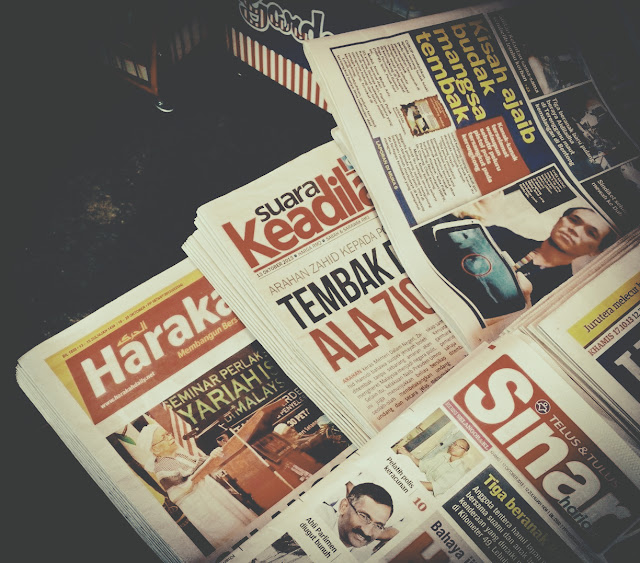As bad as it gets for the journos, that is how bad it is also turning out to be for powerful stakeholders, who are pressing for the further muzzling of the media. The re-acquisition of the premium business daily, The Malaysian Reserve (TMR), by a group under the tight grip of the ruling political class does not augur well for the local media industry.
The cat is out of the Redberry Media Group's bag, with its ongoing bid to acquire TMR.
This is the direct result of what Tun Mahathir Mohammad said was an order from the government to DRB HICOM to sell the prized publication back to its previous owner.
Since Redberry does not have all the money it would need to take over the entire stake in TMR, it has agreed to hold 51% stake, leaving the other 49% to DRB.
The deal is that the top editors and managers of TMR are to quit.
In this respect, Shamsul Akmar and Sufi Yusuf, will leave the company that currently owns the newspaper to make way for Redberry staffs.
The new owner, under the helm of Datuk Sew Ka Wei, will have full editorial control of the newly acquired publication.
And this may simply be another miscalculated move by the regime of Najib Razak.
While acquisitions, and mergers are nothing new in the Malaysian media landscape, the current situation seems to be inevitable for the Najib government.
The regime in place feels it has to take actions that will protect its interests, and curbing the press is one such action.
The Pak Lah Era
One of these is to curtail on the freedom the media had enjoyed under the Tun Abdullah Badawi era.
The former Malaysia PM was seen as a hero of democracy for liberating the media.
Abdullah - known as Pak Lah - was on the verge of liberating the media completely with new laws and regulations that were to be voted by the Parliament.
Unfortunately, Pak Lah had to resign, and Najib was anointed as his successor.
Today the media world is paying a heavy price for this forced removal of Pak Lah.
Malaysia's media industry now faces a critical moment that will be remembered as history.
The freedom of the press is one of the 'modern' fundamentals emerging nations should not do without.
This is a major fundamental in the investor's handbook, as they look into the level of media liberties when they decide to trust a government with their cash influx.
Clamping on the media, with dubious acquisitions (if we are to believe Tun Mahathir), and forcing self-censorship on other media outlets by extension, of threats against journalists and their freedom to report, is not going to help.
Buying a newspaper to keep editors under iron fist rule, or to control its content, is a dirty way to play the political game - however dirty politics are.
Resorting to such tactics to force journalists not to think or to write clearly about a certain sticky issue, and is not going to win sympathies.
On the contrary, it risks causing further erosion of the ringgit, the local stock market and take a deeper dip in investor confidence.
Thus, what should the government do, in order to prevent the clear and present danger of losing the remaining confidence, trust and belief in its rule?
It should, first of all, ensure that journalists - and their papers (portals altogether) - has the freedom to report.
Whether they are reporting the truth, or they are twisting facts and spinning or accused of publishing false report regarding ministerial comments, there are laws that have provisions for reporters and editors to be brought to court.
Tun M's lost battle
Experts have argued, and continue to point out, there are enough laws and avenues for the authorities to take steps to stem any libellous and defamatory printouts.
With the forced sale of the TMR, it appears that the Tun Mahathir camp may have lost the print battle.
The only newspaper controlled by the group, morally seen as behind the former Prime Minister's vision of Malaysia will now be a pro-Najib paper.
What is TMR's crime?
It is accused of anti-1MDB criticism, but does this automatically turn it into an anti-Najib paper?
Given the fact that Tun Mahathir is the real owner of TMR, coupled with his status as the most ardent critic of Najib, it was inevitable that the paper will fall victim to the powers that be. ■
Ali Cordoba is a political activist living in Riau, Indonesia. He writes extensively on regional matters, including Malaysian politics.












